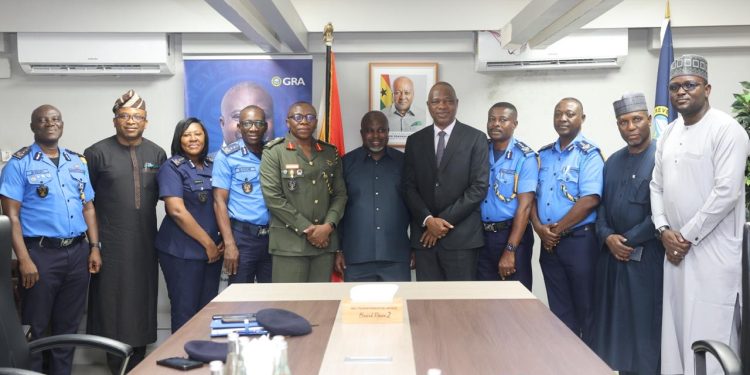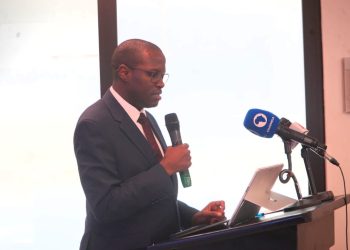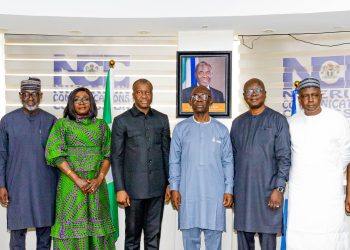By Nkechi Eze
In a renewed drive to consolidate regional cooperation and tackle transnational crimes, the Nigeria Customs Service (NCS) and the Customs Division of the Ghana Revenue Authority (GRA) have pledged to deepen bilateral collaboration to combat illicit trade, strengthen border security, and advance the goals of regional economic integration under the African Continental Free Trade Area (AfCFTA).
The Comptroller-General of Customs, Bashir Adewale Adeniyi, reaffirmed Nigeria’s commitment to this vision during a high-level visit to the Commissioner-General of the Customs Division of the GRA, Brigadier General Glover Annan, at the Authority’s Headquarters in Accra, Ghana, on Monday, November 3, 2025.
During the engagement, both agencies underscored the importance of intelligence sharing, harmonised border procedures, and coordinated enforcement strategies as crucial mechanisms to curb smuggling and other forms of illicit trade while promoting legitimate commerce between the two West African neighbours.
Welcoming the Nigerian delegation, Brig.-Gen. Annan lauded the enduring relationship between both nations and expressed Ghana’s readiness to strengthen operational cooperation with the Nigeria Customs Service.
“Our nations are united not just by history and culture but also by a shared vision to strengthen customs operations,” he said. “The Nigeria Customs Service has continued to inspire our reforms and innovation in Ghana, and we see great opportunities in renewing our collaboration.”
He also commended the NCS for championing the Customs-Partnership for African Cooperation in Trade (C-PACT) initiative, developed in collaboration with the African Export-Import Bank (Afreximbank) and supported by the World Customs Organisation (WCO). Brig.-Gen. Annan noted that the forthcoming C-PACT Conference, scheduled to hold in Abuja from November 17 to 19, 2025, would provide a strategic continental platform for Customs administrations to explore new frameworks that enhance transparency, lawful trade, and sustainable economic growth.
In his remarks, CGC Adeniyi reaffirmed that closer cooperation between African Customs administrations was essential to neutralising the growing threats of transnational smuggling and cross-border criminality. He noted that illicit networks continue to exploit operational and procedural gaps between Customs services across the continent, necessitating a united front anchored on intelligence-driven enforcement and technology-enabled systems.
“We must bridge the gaps between our administrations because these are the same weaknesses that transnational criminals exploit,” Adeniyi stated. “The more we work together, exchanging intelligence and building capacity, the stronger we will be against these syndicates.”
The Customs chief recalled that Nigeria and Ghana had signed a Memorandum of Understanding on Customs Cooperation in 2001 and suggested that both countries review and update the agreement to reflect contemporary realities, digital transformation, and emerging trade frameworks under the AfCFTA.
“It would be my wish that we take a second look at that agreement and breathe new life into it,” he said. “We can identify new areas of collaboration that align with today’s challenges and the future we envision for African trade.”
CGC Adeniyi further explained that his visit to Accra was not only to reinforce long-standing bilateral ties but also to seek Ghana’s institutional support for the upcoming C-PACT Conference. He emphasized that both countries share a responsibility to ensure Customs administrations play a leading role in advancing intra-African trade and regional prosperity.
“Our mission is to strengthen the role of Customs as a major promoter of AfCFTA,” he declared. “We want to increase the volume of trade within Africa and ensure that trade becomes a true driver of growth and prosperity for our people.”
The visit, which featured high-level discussions on joint border management, technology integration, and human capacity development, is expected to culminate in a renewed partnership framework between the Nigeria Customs Service and the Ghana Customs Division. The framework will focus on intelligence-led enforcement, coordinated border operations, and trade modernisation, all geared toward fostering economic stability and security across the West African sub-region.

















